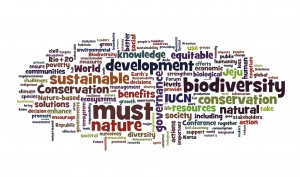We make a living by what we get, but we make a life by what we give.” – Winston Churchill.

courtesy pixabay
Corporate social responsibility. If you are in the oil and gas industry you have likely heard these three words before. They pop up at most conferences. You see them in company literature. Opposition groups demand it. So what exactly is it and why does it matter?
Being socially responsible is easy to define, harder to achieve. The ultimate goal is to perform ethically all the while being cognizant and respecting social, cultural, economic and environmental issues. Incorporating this into a companies goals helps to have a positive impact on development, business and society and also includes an improvement to bottom-line results and your companies reputation.
Unfortunately for the oil and gas industry it’s history is not untarnished. The first oil well in North America was drilled in Ontario in 1858. Over the years the industry has been accused of doing whatever was needed to make profits regardless of the consequences to others or the environment.
Mounting opposition to its ways, set the industry on it’s heels. In 2002, The World Petroleum Council* stated before its Congress:
For the first time in the business world, the 17th World Petroleum Congress will debate the issue of
corporate social responsibility in the oil industry at the dawn of a new century. This year’s Congress theme,
“Petroleum Industry: Excellence and Responsibility in Serving Society” will determine the Event’s program
agenda.”Companies in our business have to consider the interests of all stakeholders. We have to worry
about the impact of our activities on all of those around us and, in particular, on the communities in which
we operate,” states Francisco Gros, president of Petrobras and of the WPC National Brazilian Committee.
Considering the industry had been around for well over a century that is quite a comment to make. A lot of companies have made similar statements since.
The key now is for companies to practice what they preach, because for this industry and the individuals involved fulfilling their social responsibility is the key to earning their social license to operate.
To help ensure you and your company achieve your goals of being socially responsible, protecting the environment and your reputation, as well as improving your bottom line, contact Katch Kan to learn more about our products and services.
We are all dependent on one another, every soul of us on earth.” – G.B. Shaw
*The World Petroleum Council (WPC) is a non-advocacy, non-political organisation with charitable status in the U.K. and has accreditation as a Non-Governmental Organization (NGO) from the United Nations (UN). The WPC is dedicated to the promotion of sustainable management and use of the world’s petroleum resources for the benefit of all. WPC conducts the triennial World Petroleum Congress, covering all aspects of the industry including management of the industry and its social, economic and environmental impact.



